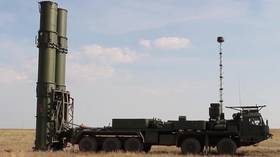G8 agenda shifts to world hunger
The G8 leaders are into their third and final day of talks in Italy, which is going to be devoted to food security, fighting world hunger and Africa’s problems.
Thursday’s agenda already included the world food crisis and increasing food aid to developing countries.
The key difference with previous G8 summits is that this time it’s not going to be aid in terms of supply only, but also giving the local economies a chance to stabilize and produce their own food – in other words, switching the focus from emergency food aid to development aid.
World Food Programme executive director Josette Sheeran said the summit leaders were right to focus on food security.
“In addition to investing in better seed technology in places like Africa, we also look at ways to connect poor farmers to markets so that we can buy food. So today, the World Food Programme buys 80% of its food from farmers in the developing world to help feed the hungry in their own country. It has two benefits – it helps the farmer, who otherwise might eat the food aid, and it helps the people in their country,” she said.
The G8 leaders are expected to announce an up to $15 billion agriculture investment initiative on the last day of their summit in L’Aquila.
Italian Prime Minister Silvio Berlusconi, who is hosting the summit, said on Thursday: “We will approve about $10-$15 billion for all the people in the world who are suffering from hunger.”
This time the G8 summit has been joined by the “Group of Five” – the leaders of China, India, Brazil, the Republic of South Africa and Mexico – as well as Egypt, and it has been decided that the “Group of Fourteen” format is going to become permanent.
Meanwhile, the first two days of the summit focused mainly on climate change and the economic crisis.
The G8 leaders adopted a document on Wednesday that stated that carbon emissions must be cut by no less than 50% by 2050.
However, they have failed to persuade developing economies to sign up for drastic emission cuts as they require substantial financing.












